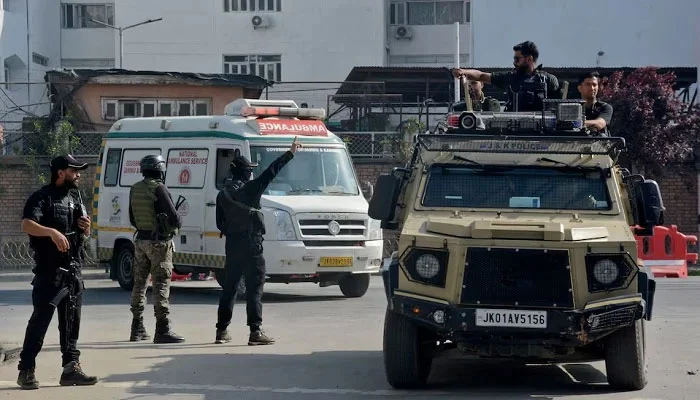SRINAGAR, OCCUPIED KASHMIR:
A devastating and tragic incident unfolded in Srinagar, the capital of occupied Jammu and Kashmir, where an explosion within the compound of the Nowgam Police Station resulted in the deaths of 7 people and injuries to 27 others. This incident immediately raises serious questions about security protocols and the safe storage of confiscated hazardous materials in the sensitive region.
According to Indian media reports, the explosion occurred when confiscated ammonium nitrate detonated unexpectedly inside the police station compound. The intensity of the blast was significant, triggering a massive fire within the police station, which compounded the human casualties.
The majority of those killed were reportedly police personnel and members of the forensic team who were engaged in the process of examining and securing the explosive material stored at the station. These fatalities highlight the hazardous working conditions faced by law enforcement and specialized personnel in the area.
This blast occurred just four days after a fatal car bomb explosion in Delhi that killed at least eight people and was labeled a terrorist act by India. While the immediate cause of the Nowgam blast is attributed to the detonation of ammonium nitrate, the proximity of these events underscores the persistent security challenges and volatile atmosphere in the region. Authorities have initiated a detailed investigation to determine where the lapses occurred in the safety protocols for storing and handling confiscated explosive material.



